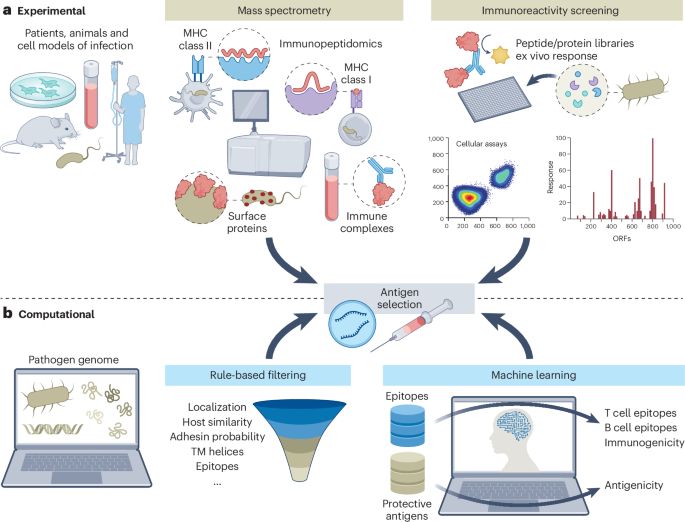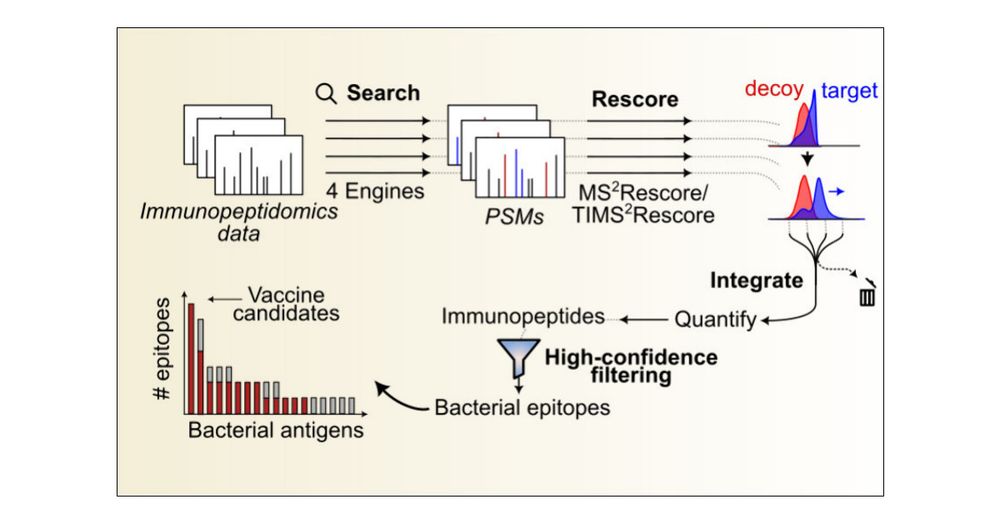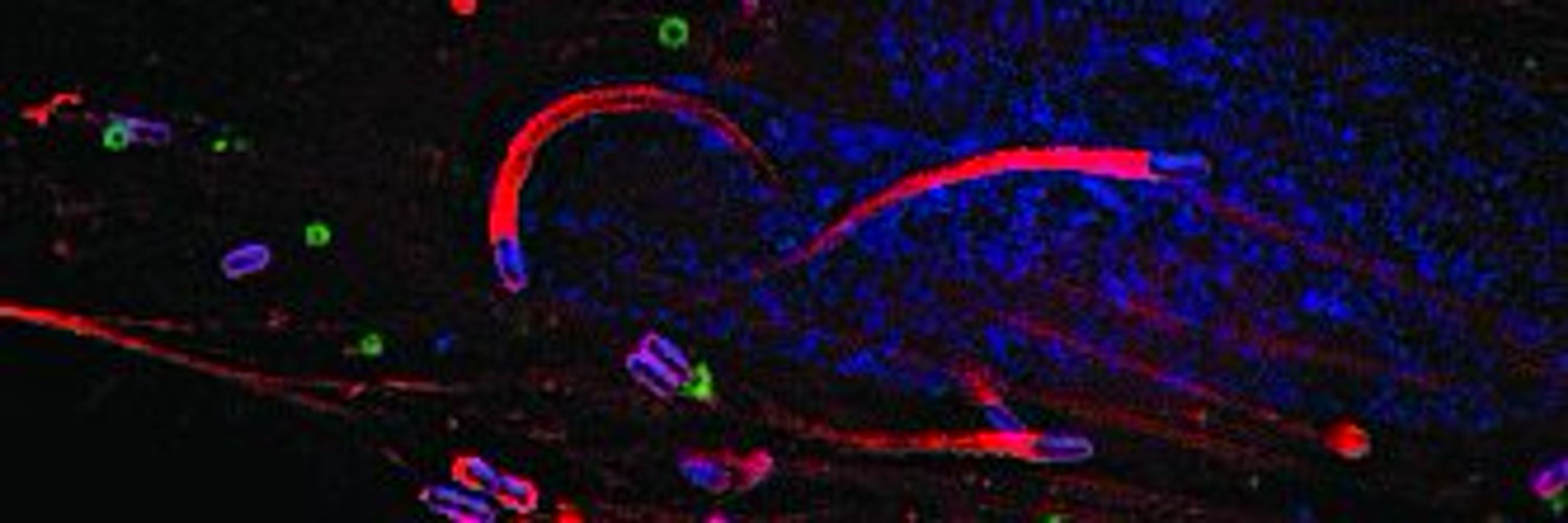Impens Lab
@impenslab.bsky.social
82 followers
32 following
4 posts
We study host-bacteria interactions using Listeria and MS-based Proteomics with a focus on Ubiquitin-like modifications (e.g. ISG15) and MHC complex peptides.
Posts
Media
Videos
Starter Packs
Impens Lab
@impenslab.bsky.social
· Aug 1

Challenges and opportunities in mRNA vaccine development against bacteria - Nature Microbiology
This Review reflects on the major challenges in bacterial mRNA vaccine design, provides strategies for tailoring mRNA construct design to promote humoral or cellular immunity, and provides an overview...
www.nature.com
Impens Lab
@impenslab.bsky.social
· May 16

Data-independent immunopeptidomics discovery of low-abundant bacterial epitopes
Mass spectrometry-based immunopeptidomics is a powerful approach to uncover peptides presented by human leukocyte antigen (HLA) molecules that can guide vaccine design and immunotherapies. While data-...
biorxiv.org
Impens Lab
@impenslab.bsky.social
· Mar 19

Maximizing Immunopeptidomics-Based Bacterial Epitope Discovery by Multiple Search Engines and Rescoring
Mass spectrometry-based discovery of bacterial immunopeptides presented by infected cells allows untargeted discovery of bacterial antigens that can serve as vaccine candidates. However, reliable identification of bacterial epitopes is challenged by their extremely low abundance. Here, we describe an optimized bioinformatic framework to enhance the confident identification of bacterial immunopeptides. Immunopeptidomics data of cell cultures infected with Listeria monocytogenes were searched by four different search engines, PEAKS, Comet, Sage and MSFragger, followed by data-driven rescoring with MS2Rescore. Compared with individual search engine results, this integrated workflow boosted immunopeptide identification by an average of 27% and led to the high-confidence detection of 18 additional bacterial peptides (+27%) matching 15 different Listeria proteins (+36%). Despite the strong agreement between the search engines, a small number of spectra (<1%) had ambiguous matches to multiple peptides and were excluded to ensure high-confidence identifications. Finally, we demonstrate our workflow with sensitive timsTOF SCP data acquisition and find that rescoring, now with inclusion of ion mobility features, identifies 76% more peptides compared to Q Exactive HF acquisition. Together, our results demonstrate how integration of multiple search engine results along with data-driven rescoring maximizes immunopeptide identification, boosting the detection of high-confidence bacterial epitopes for vaccine development.
pubs.acs.org
Impens Lab
@impenslab.bsky.social
· Mar 19
